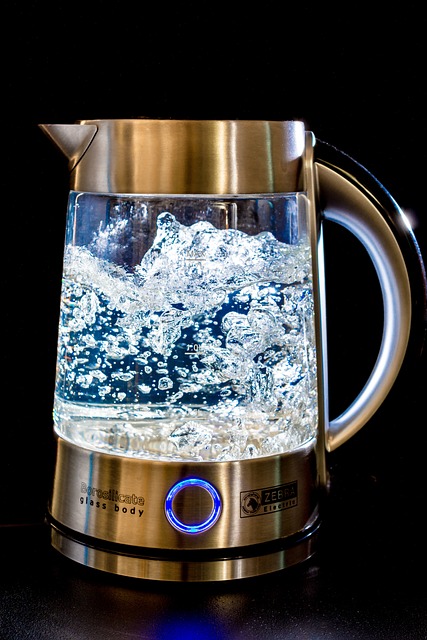Tankless water heaters offer a compelling solution for homeowners seeking improved energy efficiency and cost savings. By eliminating storage tanks, these heaters provide on-demand hot water, reducing energy waste and utility bills. Their advanced technology ensures precise temperature control, compact designs offer flexible installation options, and their durable performance minimizes maintenance costs and extends lifespans. Adopting tankless water heaters can lead to significant returns on investment through reduced energy consumption, faster payback periods, and overall enhanced cost-effectiveness.
In the quest for efficient home heating, the choice between tankless and traditional water heaters is pivotal. This article guides you through a detailed comparison, focusing on return on investment (ROI). We explore the limitations and costs of conventional tanks while uncovering the advantages of tankless heaters, known for their energy efficiency and on-demand hot water supply. By the end, you’ll understand why many homeowners are opting for tankless systems, reaping benefits that include significant cost savings and reduced environmental impact.
- Understanding Traditional Water Heaters: Their Limitations and Costs
- Unlocking the Advantages of Tankless Water Heaters
- A Comparative Analysis: ROI (Return on Investment) for Both Options
Understanding Traditional Water Heaters: Their Limitations and Costs

Traditional water heaters, also known as tank-based or storage tanks, have been the standard for decades. However, they come with several limitations and associated costs. One of their primary drawbacks is energy inefficiency. These units heat and store large volumes of water, which can lead to significant energy wastage, especially if not used frequently. The constant heating and reheating process results in higher energy bills, contrary to the implied efficiency of keeping a reservoir hot.
Moreover, traditional heaters often struggle to meet peak demand, particularly in larger households or buildings. During periods of high usage, such as morning routines or hosting guests, the heater might struggle to provide enough hot water promptly. This can cause frustration and may lead to temperature fluctuations, posing potential safety risks, especially with scalding dangers for children and elderly users. Understanding these limitations paves the way for appreciating the benefits of tankless water heaters, which offer more efficient, on-demand heating solutions.
Unlocking the Advantages of Tankless Water Heaters

Tankless water heaters offer a host of benefits that can significantly enhance your home’s energy efficiency and lower utility bills. One of their key advantages is instant hot water, eliminating the need for a storage tank. This means no more waiting for hot water to reach the faucet, saving time and reducing energy wastage. By eliminating the storage tank, tankless heaters also take up less space and can be installed in areas where traditional heaters wouldn’t fit.
Moreover, these heaters are designed to be highly energy-efficient, with advanced technology ensuring precise temperature control. This precision allows for more consistent water heating, minimizing the risk of temperature fluctuations that waste energy. The absence of a storage tank also eliminates the need for periodic draining and flushing, which can extend the life of your heater and reduce maintenance costs.
A Comparative Analysis: ROI (Return on Investment) for Both Options

When comparing traditional storage water heaters to tankless options, the latter offers a compelling case for improved ROI. One of the key advantages of tankless heaters is their energy efficiency. By heating water on-demand, there’s no stand-by heat loss, significantly reducing energy consumption and lowering utility bills. This efficiency translates into faster paybacks on your investment, making tankless heaters an attractive option for those seeking long-term savings.
Additionally, tankless water heaters provide numerous benefits that contribute to a higher ROI. They eliminate the need for large storage tanks, saving space and potentially reducing installation costs. Moreover, their compact size allows for flexible placement, enhancing design options in various settings. The longevity of these heaters is another advantage; with proper care, they can last 20 years or more, ensuring sustained performance and continued savings over time.
When considering the best water heater for your home, choosing between tankless and traditional models comes down to understanding their unique advantages. While traditional heaters offer familiarity and lower initial costs, tankless heaters provide energy efficiency, continuous hot water, and long-term savings through reduced energy consumption and elimination of storage tank maintenance. In terms of ROI, tankless heaters excel due to their compact design, precise temperature control, and the significant reduction in energy usage, making them a smarter investment for modern households. Adopting the benefits of tankless water heaters can lead to both environmental conservation and substantial financial savings over time.
